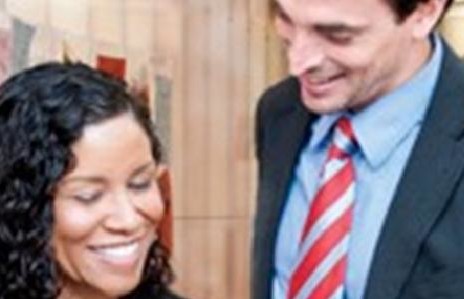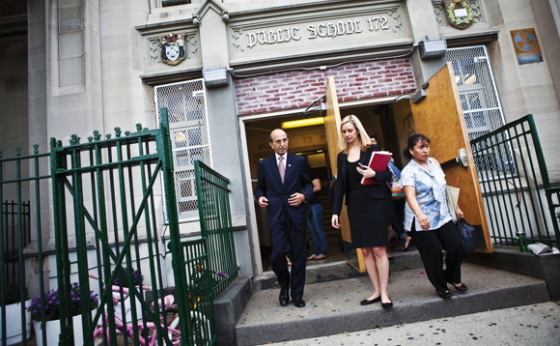
Innovative School Leadership Programs
PREAL series reviews three exemplary programs in US that recruit, train, and retain highly qualified principals.
A blue-ribbon panel of education experts released a report this week through the National Council for the Accreditation of Teacher Education (NCATE) that calls for teacher-training programs in the US to be “turned upside down,” moving from traditional teacher training programs to clinical practice, including increased classroom experience and evaluations in front of students. The report, titled “Transforming Teacher Education Through Clinical Practice,”is based in part upon six topical briefing papers,which lay out the logistics and theory behind the report’s proposals. The article below from the Wall Street Journal summarizes the reports findings and several reactions to it.
There is likely to be widespread support for these proposals, and at least eight states have agreed in principle to implement the report’s recommendations at the policy level. Rick Hess, however, wrote a provocative blog post in EducationNext that challenges the evidence-base for these proposals. “I didn’t see much evidence in this report… I couldn’t find anything in the report acknowledging that, if clinical preparation is the key, it may make sense to increasingly cut colleges or universities out of the preparation equation…” and “after all, the ‘normal school’ and programs of teacher preparation are 19th century innovations; isn’t it possible that a ‘radical’ 21st century rethinking might not want to presuppose that we rely on that machinery?”
While a valid or robust set of evidence is unlikely to emerge to support increased clinical training for student teachers across the board, there is near universal support for teacher preparation reform, including from the national teachers’ unions (the AFT and NEA leadership was included on the blue-ribbon panel). This report, whether or not correct in identifying clinical practice as the missing ingredient for young teacher success, brings much-needed and high-level attention to the topic. The key question, as Hess rightly implies, will be whether these proposed reforms simply represent the “conventional wisdom of the moment,” or will bring about the desired changes in the teaching profession, and in turn, student learning.
Read the Complete Article from the Wall Street Journal by clicking “Read More” below.
Panel Recommends More Classroom Practice, Higher Standards for Applicants
By STEPHANIE BANCHERO
A panel of education experts has called for an overhaul of U.S. teacher-preparation programs, including a greater emphasis on classroom training as well as tougher admission and graduation standards for those hoping to teach in elementary and secondary classrooms.
The panel’s sweeping recommendations, released Tuesday, urge teacher-training programs to operate more like medical schools, which rely heavily on clinical experience.
Teacher candidates should spend more time in classrooms learning to teach—and proving that they can boost student achievement—before they earn a license to teach kindergarten through twelfth grade, the panel said.
“We need large, bold, systemic changes,” said James Cibulka, president of the National Council for the Accreditation of Teacher Education, the group that convened the expert panel. “As a nation, we are expecting all of our students to perform at high levels, so it follows that we need to expect more of our teachers as they enter the classroom.”
The panel said local school districts should work more closely with higher-education officials to train student teachers and assess whether they are actually helping students learn. In most states, candidates spend only about 10 to 12 weeks observing teachers or student-teaching themselves, with the bulk of their time spent listening to college lectures.
The nation’s colleges of education are a patchwork of programs which vary in quality. Each state sets its own admissions, graduation and licensing requirements, and teacher candidates aren’t required to graduate from nationally accredited programs.
As evidence has mounted that teacher quality is the biggest in-school determinant of student achievement, the programs have come under fire. In addition to a lack of real-life classroom training, critics have said the programs have lax admissions standards.
Studies have shown that, historically, students who enter teacher-education programs generally have lower grade-point averages or lower scores on college-entrance examinations than students who enter other professions.
The panel report didn’t recommend specific admissions standards, leaving that to individual states and schools. But it said teacher-preparation programs needed to increase their standards to “improve the candidate pool.”
Sharon Porter Robinson, president of the American Association of Colleges of Teacher Education, said many states had ratcheted up admissions standards, but more work was necessary.
“We need to become a more competitive career choice and we need to tap into a much wider span of the talent pool,” said Ms. Robinson, who praised the panel’s recommendations.
The panel, convened 10 months ago, includes representatives from higher education, K-12 school districts, teachers unions and state boards of education. It doesn’t have the authority to institute the recommendations, but has persuaded higher-education and K-12 school officials in California, Colorado, Louisiana, Maryland, New York, Ohio, Oregon and Tennessee to begin trying some of the recommendations in pilot programs.
The panel report also pushes for a tougher accreditation process, saying the current system isn’t rigorous enough and that it gives stamps of approval to weak programs. Studies have shown that teacher-education graduates take state licensing exams that often aren’t very challenging.
Mr. Cibulka’s teacher-accreditation group, for example, turned down only two of the roughly 100 programs that applied for accreditation this year.
Mr. Cibulka vowed in an interview to raise accrediting standards and to revoke accreditation from schools that fall short.
Arthur Levine, the former president of Teachers College at Columbia University who issued a highly critical report on teacher-preparation programs in 2006, said the recommendations were a good start.
“The key here isn’t the words in the report, it’s whether this report ends up on a shelf somewhere or is enacted,” said Mr. Levine, who served on the panel and is president of the Woodrow Wilson National Fellowship Foundation of Princeton, N.J. “It’s much easier to write a report than to put it into action.”
PREAL series reviews three exemplary programs in US that recruit, train, and retain highly qualified principals.
Article argues that the education system is creating “two Americas” and lists three keys to rebuild the K-12 system.
Articles explore the growing trend of eliminating teacher tenure in public education in the US.
